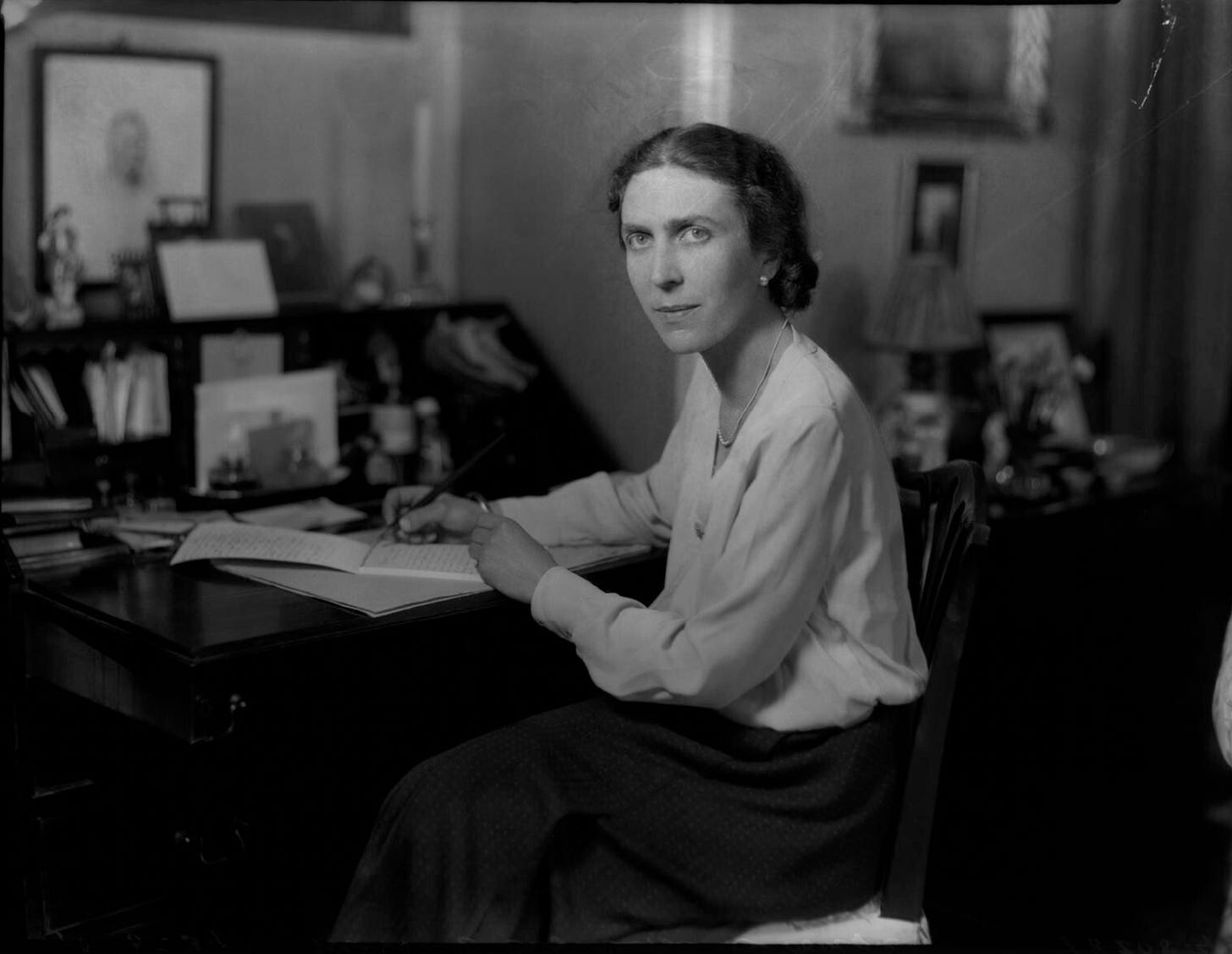
Shy, Observant Miss Goudge
Elizabeth de Beauchamp Goudge (1900-1984) was a best-selling British author who wrote adult novels, children’s novels, poetry, short stories, nonfiction and poetry anthologies, published over more than forty years, from 1934 until 1976.
She won a prize from a US film company (Metro-Goldwyn-Mayer) in 1944 for Green Dolphin Street. She also won the Carnegie Medal for British children’s literature in 1946 for The Little White Horse—which happens to have been JK Rowlings’ favorite book from childhood, and one that she says helped inspire the cozy scenes in the Harry Potter series.
Elizabeth Goudge was a deeply committed Christian in the Church of England all of her life, and she brought her faith into her stories and anthologies without being preachy. Her novels were printed serially in many ladies magazines during her lifetime, and her children’s stories were featured on BBC radio for many years.
What was Goudge's life like?
Goudge was born in the last few months of the reign of Queen Victoria in April 1900, and her parents were a very important part of her story.
Her father was a clergyman and theologian of the Church of England and so their family lived in three different cathedral cities for his work with the church until his early death. Elizabeth was born on April 24th, 1900 at Tower House next door to Wells Cathedral.
As a little girl she was given a key to a hidden gate of the Bishop’s grand palace garden, where she would go by herself to enjoy tea time with the housekeeper. A decade later they moved north of London to Ely Cathedral for Rev. Goudge’s work as a canon, and then in 1923 he was honored with one of the highest posts in the Church of England as Regis Professor of Education and was given the living right under the clanging bell of Tom Tower in Oxford.



Goudge’s Parents
Reverend Henry Leighton Goudge was also an author, and Elizabeth found a lot of joy in sharing their manuscripts with one another in her thirties, just as her career was beginning. He fostered Elizabeth’s reading as a child with Andrew Lang’s fairy tales, poetry of all sorts, Jane Austen and Shakespeare. Her father took her to her first Shakespearean performance in London when he came to pick her up once from school.
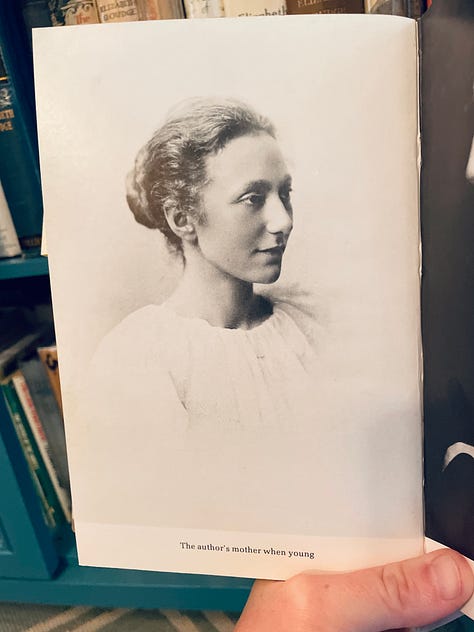
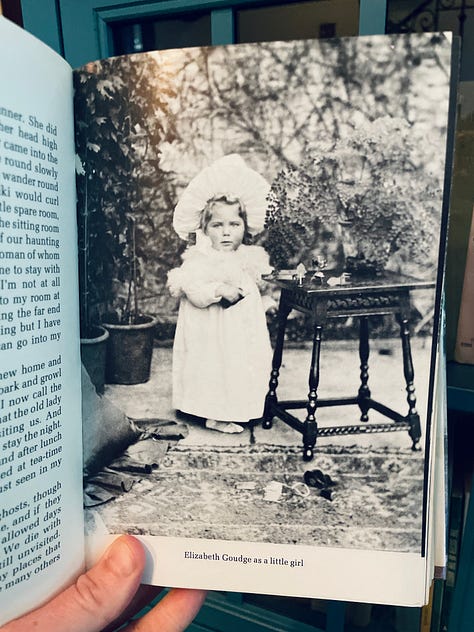
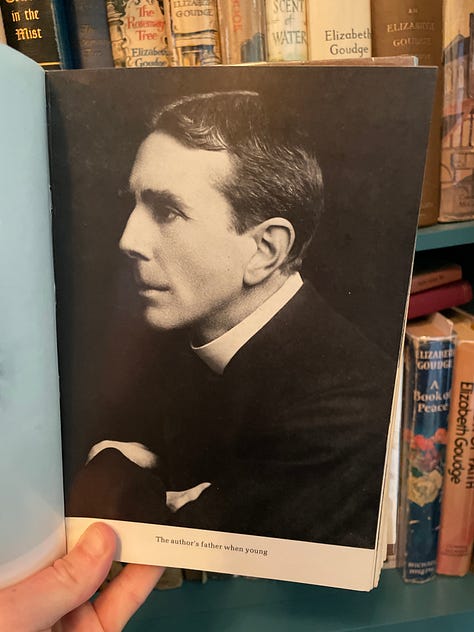

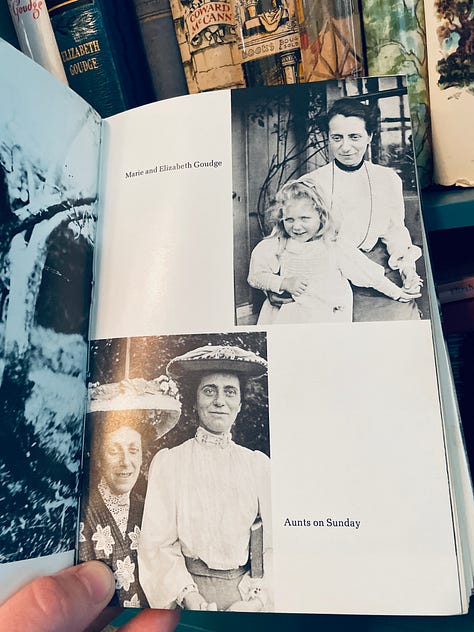
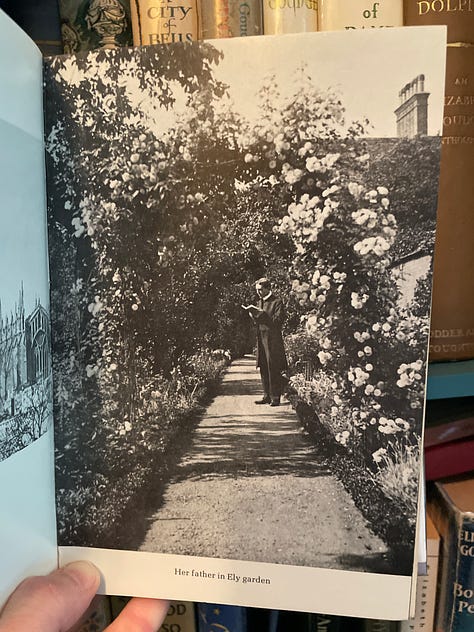
She adored her father, and she did a great deal all her life to care for her invalid mother. Goudge dedicated her first novel, Island Magic, to her mother in 1934, as it is set in her mother’s childhood home of Guernsey and inspired by her mother’s lively family.
Just as Jane Austen’s family was forced out of their parsonage upon the death of her father, Elizabeth Goudge and her invalid mother, Ida, were forced out of their parsonage home in Oxford when her father died suddenly in 1939. He had been so generous in life that they were left with little money to care for themselves. They were very nearly homeless and penniless at the start of WWII. Elizabeth suffered a mental breakdown around this time, and had to spend some time recovering near Keyhaven, which would become the setting for her Eliot books including Pilgrim’s Inn.
Writing Career
After her father’s death, Goudge had to quickly become the breadwinner of the household to financially support her mother, even though she had not received any career education. She started life in a Victorian ladies school, and did not have success in her later attempts in education. She was painfully shy all of her life, and had a stutter into her 50’s. She had dreamt of being an actress and a nurse, but was told she was not physically fit enough. So she began to work at what she could do: writing.
After four years of working on Green Dolphin Country (titled Green Dolphin Street in the US), it won a cash prize from a US film company. She said to a friend, “The old dolphin saved the day.” The book made her a best seller overnight in 1944 at the height of the war, even though it was long and paper was hard to come by. It was even printed in a shortened, travel edition by the US Armed Services for the troops. Metro-Goldwyn-Mayer adapted Goudge’s story into a film in 1947 that starred Lana Turner and Donna Reed. Goudge disliked the changes to her plot, but it won an Oscar for best visual effects!
Devon & Oxfordshire
Elizabeth nursed her mother through years of mental illness until Ida died in 1951. During that time Goudge published several novels for adults and several for children, including The Little White Horse, which used the local Compton Castle in Devon as its setting. After the death of her mother, she settled in Rose Cottage in Oxfordshire and wrote some of her most wonderful adult novels including The Scent of Water, The White Witch and The Dean’s Watch. She also wrote her memoir and compiled many poetry anthologies.
Elizabeth Goudge (which is pronounced somewhere between “Scrooge” and “rouge”) was visited by a constant stream of visitors and admirers from the 40’s until the end of her life, with them popping in the door at all hours. She felt that fame was her duty to share more of herself, so she wrote letters and visited with everyone who came. She loved her little dogs, doing embroidery, observing nature and living in the country. Elizabeth died quietly at Rose Cottage at just before Eastertide on April 1st, 1984.








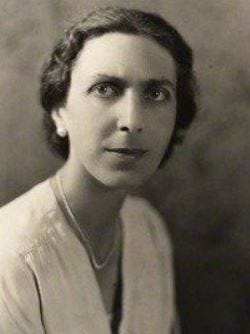
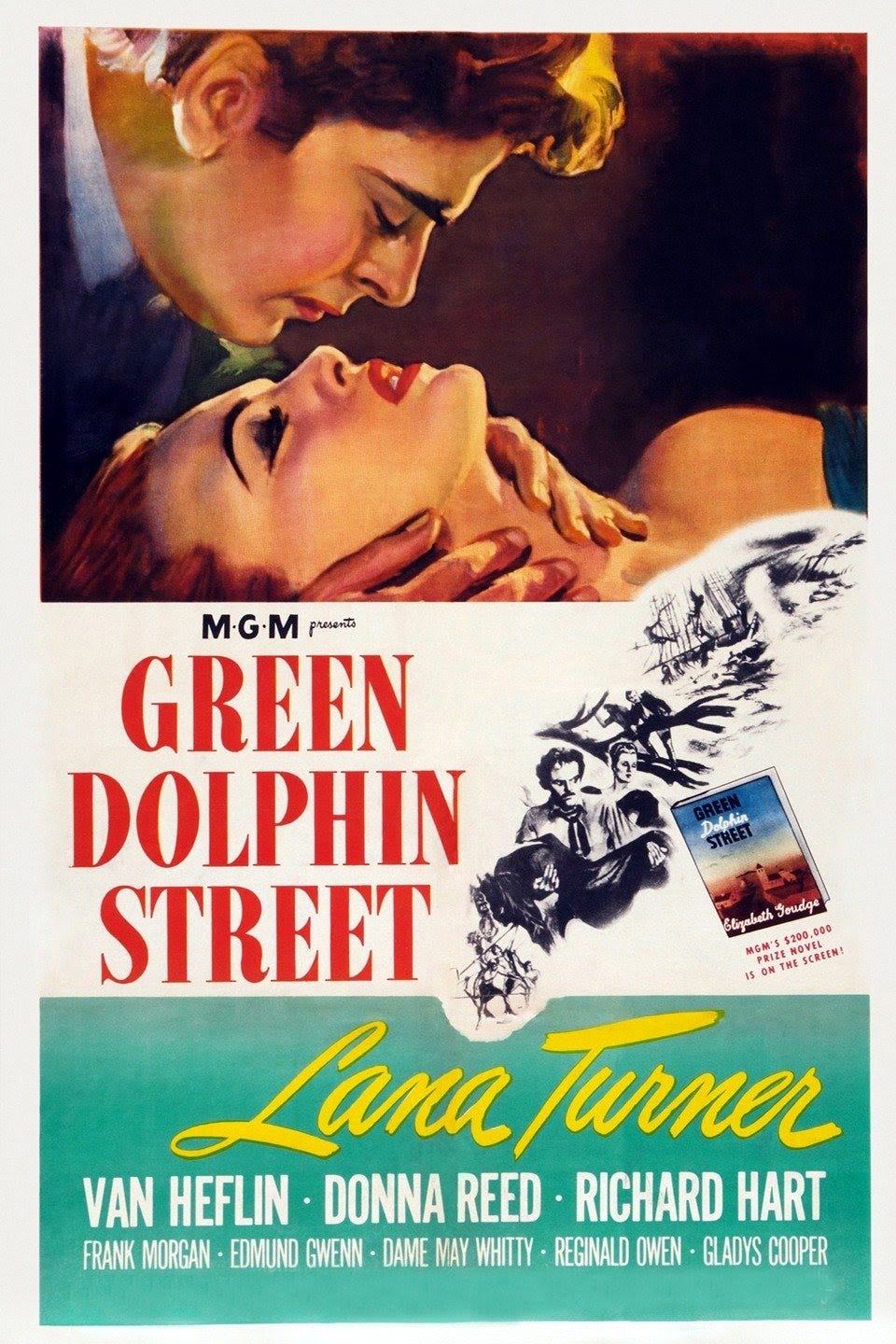
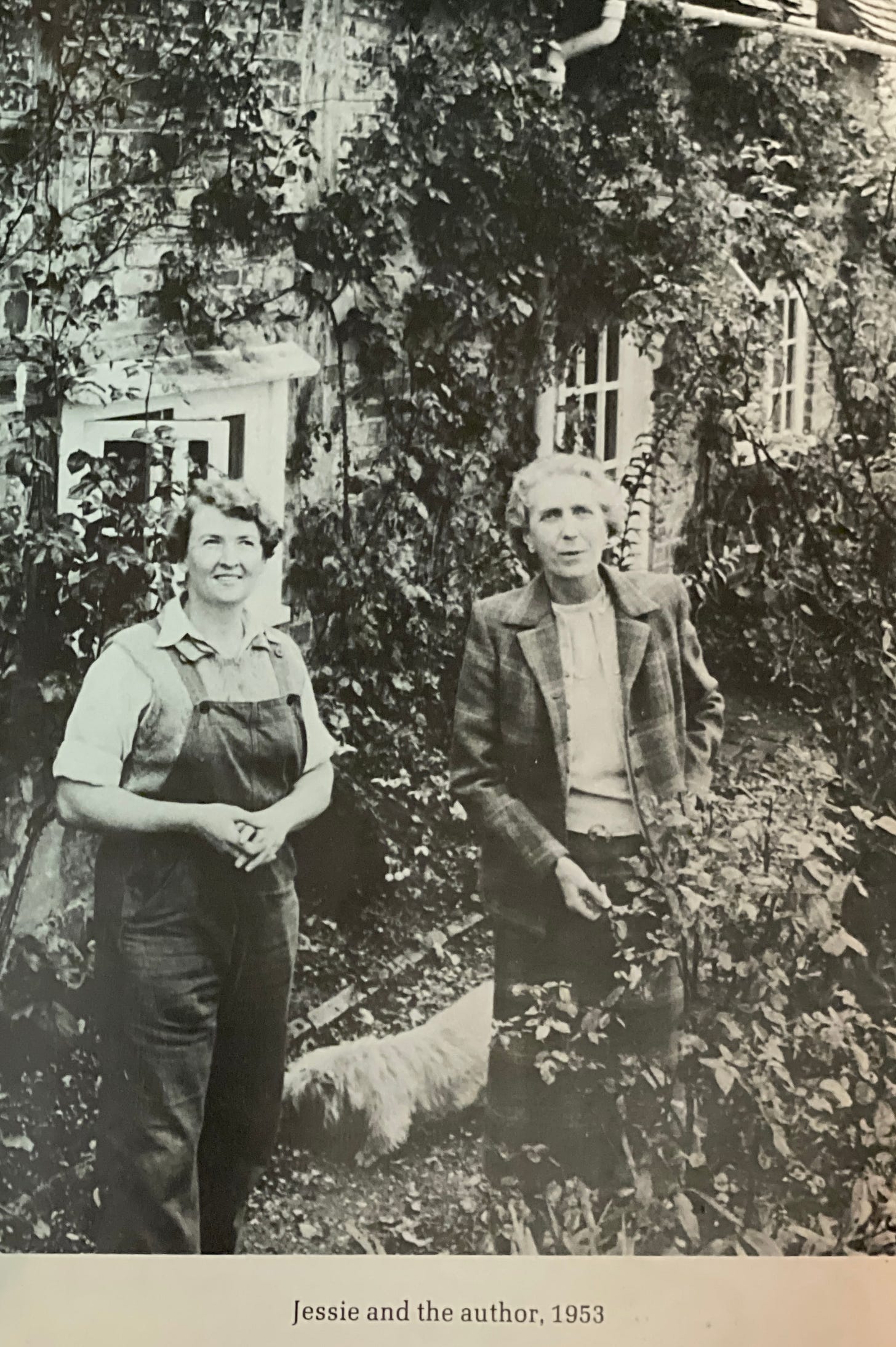





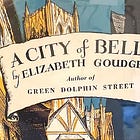


This is not an item to include in a biography of Goudge's life, but I think that a statement of appreciation by the principal leader of the Church of England is a very good thing. Former Archbishop of Canterbury Rowan Williams states in a back-cover endorsement of Christine Rawlins' Goudge biography _Beyond the Snow_: "This is a much-needed study of a remarkable life. Elizabeth Goudge was not only a sensitive and acute artist in fiction, but a profoundly insightful commentator on the processes of growing up spiritually and morally. She fully deserves the kind of sympathetic and appreciative exploration provided by this book."
Excellent overview! I thought Elizabeth did take a course in arts and crafts and had a short-lived, unsuccessful school for girls in that field?